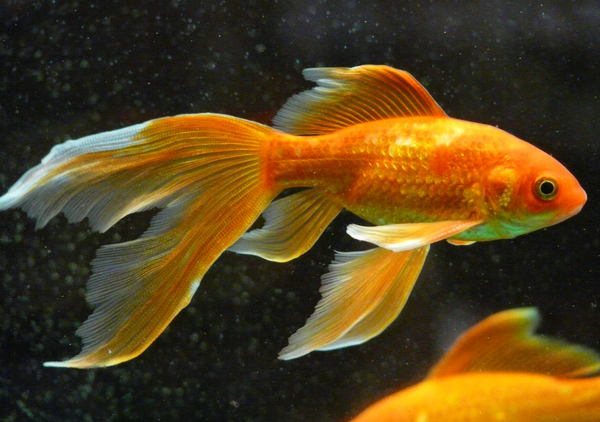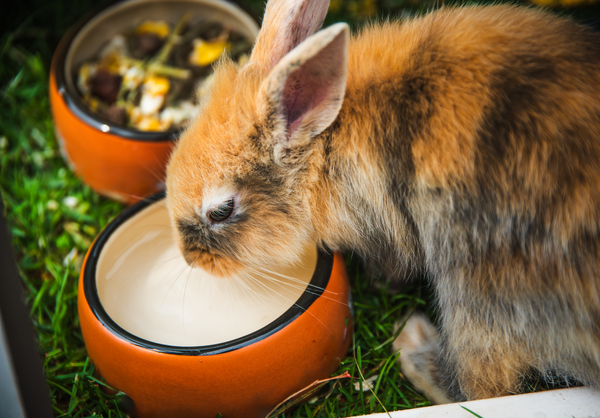 If you have ever heard the old phrase "big things come in small packages", nothing could relate more than the Conure! The conure has grown to be one of the most popular pet birds in North America. In addition to their beautiful colors, they have a large parrot personality stuffed into a small parrots body!
If you have ever heard the old phrase "big things come in small packages", nothing could relate more than the Conure! The conure has grown to be one of the most popular pet birds in North America. In addition to their beautiful colors, they have a large parrot personality stuffed into a small parrots body!
About the Conure
Conures are a large collective of diverse medium to small sized parrots native to South America. Conures come in a seemingly endless array of different species and color mutations. Some of the common species you can find at your local pet shop are Green-cheek, Pineapple, Sun (pictured above), Yellow-sided & Pearly conure. With proper care and mental stimulation, your average conure can live up to 20-30 years in captivity! They have long tail feathers, and will peak between 10"-20" depending on the species.
Personality & Behavior
 Conures are known to charm people with their playful and curious personalities. It is not uncommon to see conures playing, dancing and hanging upside down off the toys in their cage. They are very social and rely on having a relationship with its owner (or other conures if you have a pair or group) to be happy. In your time spent together, the relationship between you and your bird will evolve far past "pet parrot" to become a "companion parrot". Conures are capable of learning some basic speech and mimics, although not as strong as others like the Budgie or African Grey. Like most parrot species, they like to be the center of attention, and are not afraid to let you know. The loud high-pitched screech of a conure can be heard throughout your home, often when excited or seeking attention. Conure birds are very intelligent for their size, and are subject to behavioral problems if not properly trained.
Conures are known to charm people with their playful and curious personalities. It is not uncommon to see conures playing, dancing and hanging upside down off the toys in their cage. They are very social and rely on having a relationship with its owner (or other conures if you have a pair or group) to be happy. In your time spent together, the relationship between you and your bird will evolve far past "pet parrot" to become a "companion parrot". Conures are capable of learning some basic speech and mimics, although not as strong as others like the Budgie or African Grey. Like most parrot species, they like to be the center of attention, and are not afraid to let you know. The loud high-pitched screech of a conure can be heard throughout your home, often when excited or seeking attention. Conure birds are very intelligent for their size, and are subject to behavioral problems if not properly trained.
Enclosure
An appropriate cage size for your conure should be tall, with a width at least 1.5x your birds wingspan, and a length at least 3x the wingspan. Flat roof cages will provide more usable space for the same amount of room taken than rounded or V shaped roofs. Your conure is going to want to play and climb on the sides of the cage, so purchase a cage with strong, horizontal metal bars no more than 3/4" apart. The bottom of the cage should either have a grate or a layer of bird-safe bedding. Pisces recommends: Prevue Hendryx Seed Catcher to keep debris from scattering out of the cage. Avoid newspapers!! The ink can make your bird sick if it decided to shred and accidentally ingests. It is important to provide a variety of perches, all varying in texture and diameter. The more options you provide, your bird can decide what is most comfortable to eat, sleep, etc. Always provide lots of toys for your parrot to keep himself entertained when you are not around. Cycle the toys every 3-4 weeks to prevent boredom.
Handling & Play Time
Keeping a single parrot (opposed to a pair or group) requires a great deal more of human interaction and stimulation for your parrot. However, a single kept bird will also be much easier to tame! If you have a young conure it usually doesn't take long for them to bond with their new owner. The main concern with parrots is biting and the sooner this is corrected, the better. When your bird bites down too hard, be sure NOT to respond in a way that would be enjoyable or proactive to your bird (such as pulling away and/or making noise). The best way to correct this behavior is to divert the beak to to an appropriate toy, or simply leave your bird completely alone for 5-10 minutes. Ideally, you should be able to provide your bird with 2 -3 hours of supervised play time outside of its cage, Pisces recommends: Mopani Bird Tree. If you spend most of your time out of the house or have an irregular schedule, a conure may not be right for you.
Conure Diet
 We recommend feeding a seed/pellet mixture designed for small parrots, Pisces recommends: Higgins Sunburst Conure Diet. You should supplement your birds diet with fresh fruits and vegetables, as well as the occasional small helping of a healthy human treat such as lean meat, whole wheat pasta, whole wheat rice, low fat cheese and hard-boiled egg. If your bird refuses to eat fruits & veggies, you may need a supplement your birds drinking water. Talk to a vet about what supplement is right for your bird.Uneaten portions of fruits, veggies and foods that can expire should be discarded daily. An occasional treat you can give your bird is spray millet, which is highly nutritious and easy to digest, but can cause weight gain if over indulged. You must also give your bird access to a cuttlebone , that will provide calcium and help your conure keep its beak in tip-top shape! Avoid avocado, iceberg lettuce, corn, or any foods high in fat, salt, caffeine, sugar, or artificial flavors & colors.
We recommend feeding a seed/pellet mixture designed for small parrots, Pisces recommends: Higgins Sunburst Conure Diet. You should supplement your birds diet with fresh fruits and vegetables, as well as the occasional small helping of a healthy human treat such as lean meat, whole wheat pasta, whole wheat rice, low fat cheese and hard-boiled egg. If your bird refuses to eat fruits & veggies, you may need a supplement your birds drinking water. Talk to a vet about what supplement is right for your bird.Uneaten portions of fruits, veggies and foods that can expire should be discarded daily. An occasional treat you can give your bird is spray millet, which is highly nutritious and easy to digest, but can cause weight gain if over indulged. You must also give your bird access to a cuttlebone , that will provide calcium and help your conure keep its beak in tip-top shape! Avoid avocado, iceberg lettuce, corn, or any foods high in fat, salt, caffeine, sugar, or artificial flavors & colors.
Grooming
Allow your conure to bath in a shallow bath or spray with a mist bottle every 2-3 days. This will help keep the feathers healthy, and allow new feathers to grow in easily. You will likely want to get your conures nails trimmed and wings clipped at some point. Keeping wings clipped will make it easier to train and bod with your parrot. Pisces Pet Emporium performs this service free of charger! Simply give us a call or pop in to the shop to book an appointment!




